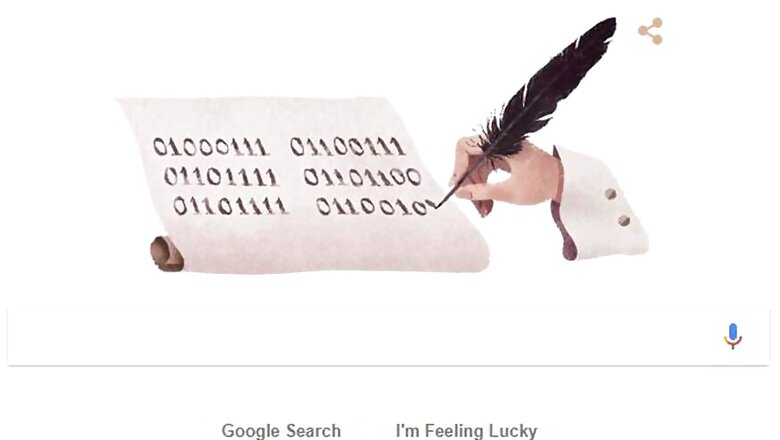
views
New Delhi: The search engine Google celebrated the 372nd birthday of German philosopher and mathematician's Gottfried Wilhelm Leibniz by featuring him in their Sunday's doodle.
Born into a pious Lutheran family on July 1, 1646 (near the end of the Thirty Years’ War), Leibniz was a German polymath and philosopher, who deserves a special place in history for having developed differential and integral calculus independently of Isaac Newton.
The German philosopher was born in Leipzig in then Roman Empire, which now falls in eastern German state of Saxony.
Leibniz is acknowledged by mathematicians across the world for laying the foundations of both integral and differential calculus and also for stating the basics of modern formula for pi.
In 1676, Leibniz became the founder of 'dynamics', a new formulation that substituted kinetic energy for the conservation of movement.
Further, 19 years later in 1695, he explained a portion of his dynamic theory of motion in the 'Système Nouveau' or 'New System', which dealt with the relationship of substances and the pre-established harmony between the soul and the body.
The contributions of Leibniz was not just confined to arithmatic. In the field of philosphy, the brilliant mind is most recognised for his conclusion that our Universe is God's best possible creation, an idea which was mocked by philosophers including French satirical polemicist Voltaire.
Leibniz was also a propounder of practical education. An indefatigable worker, a universal letter writer and a great scientist , Leibniz was named librarian in 1691 at Wolfenbüttel and propagated his discoveries by means of articles in scientific journals.
Invented by Leibniz in 1673, a Leibniz wheel - a calculating engine, was three centuries later revamped into the electronic calculator in the mid-1970s.
Leibniz continued his duties as historian until the end of his life. He breathed his last at the age of 70 in Hanover in 1716.
Irrespective of Leibniz' myriad contributions, he spent his final years away from the intellectual circles of the world after Scottish mathematician John Keill accused him of plagiarising Isaac Newton's work on calculus.
















Comments
0 comment